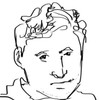Image via Flickr user Fan the Fire
Advertisement
Advertisement
Advertisement
Will Vince's film succeed? Will Eric and his ex get back together? Will Turtle land the pugilistic woman of his dreams? Will Drama fuck? Despite the fact that I haven't actually seen the movie, the answer to all of these questions is almost certainly "yes." In the world of Entourage, everything works out. (Assuming you are a member of the entourage.)Before I moved to Los Angeles, I had never watched Entourage. Everyone I hated in college for being overly bro-y invariably loved it, which meant that in the interest of distancing myself from the scourge of bro-dom, I had to hate it. But when I moved to Los Angeles, I decided to mainline the entire series, watching multiple episodes per night and cramming the entire eight-season series into a few weeks. What I found was that I had been wrong. Entourage is amazing, and everyone who cares about anything should watch it.The thing that enthralls me about Entourage is not the glitz. Nor am I invested in the process of how big-budget Hollywood films are made. And to be honest, I don't feel particularly connected to the characters. Instead, to me, Entourage is a mystery wrapped in an enigma wrapped in a mindfuck, blurring the lines between reality and unreality until you truly believe the distinction between the two doesn't exist. If, as Ellin instructs you to, you ignore the bells and whistles of wealth and status that accompany Entourage, the show's central conceit reveals itself: Four childhood friends have the same conversation, over and over, for eight years. It's like Waiting for Godot, but longer, and with more dick jokes. Because of its cyclical nature and extremely low stakes, Entourage is one of the most watchable pieces of entertainment ever created. Like an episode of Law and Order, the viewer can instinctively anticipate what's going to happen, and instead of being upset that it does happen, is given a mental reward in the form of a shot of a cool car or the guys engaging in some arch camaraderie when things work out the way we assume they will.Entourage is amazing, and everyone who cares about anything should watch it.
Advertisement
Advertisement
Advertisement
E: As your manager, I have concerns about this.
Turtle: Let's do it! I would like to leech off of Vince somehow.
Drama: I was once famous, and I have already done this thing (albeit in a somewhat pathetic manner).The backdrops for these conversations rarely change. They are at a party, surrounded by beautiful women. They are at Urth Cafe, running into celebrities. They are in Vince's home, where they all live, and Johnny Drama is cooking everybody breakfast. They are at Ari's office, and Ari is yelling at Lloyd, and also them. And so on, and so forth, into a spiral of infinity.
Advertisement
